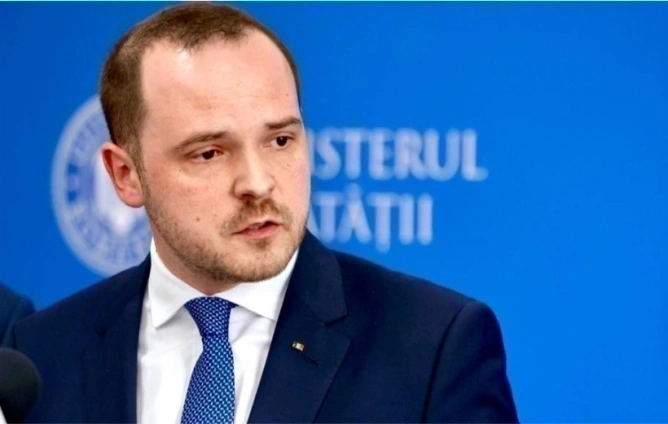
There has been a lot of talk in recent weeks about who Călin Georgescu is going to hand... and it turned out that, in the end, he did not appoint a successor... The issue remains of interest, because everything that happened last fall and winter has fueled the impression that elections are like a kind of black box from which a surprise can always come out. Roughly translated, some believe that anyone can become president, just by convincingly jettisoning the political establishment and adding a few sovereignist touches to the speech. And be present on TikTok, of course.
But the right question seems to be another. Who qualifies to receive the gift of the electorate? It's an electoral phenomenon of the last 20 years, don't you know. I first talked and wrote about it back in 2014, when I spent the month of the election campaign and the afternoon and evening of the second round of the presidential election on TV, watching in the heat of the moment (although it was quite cold outside) as Victor Ponta's first-round advantage melted away hour by hour and the race was won by a Iohannis who, frankly, had not done much of anything in the televised debates with his opponent. Remember the night Iohannis won the election? The one when his sympathizers marched in front of the PSD headquarters to remind the so-called party that it had lost, even though it had started from all points of view with the first chance? What about the fact that, afterwards, they also went to the PNL headquarters, but still to draw attention to the fact that Klaus Iohannis's success was, as I was saying, the gift of the electorate and not the party's merit? These things were discussed at the time and Iohannis debuted in the presidency as a "servant of the people" (I hope you understand the importance of this metaphor), not as the man of the PNL.
But it was the same before that, in 2004. Let's be honest, Adrian Nastase's term as prime minister was not without economic and diplomatic successes, with all the problems we know (and which have grafted the PSD's image to this day). In fact, even Năstase's presidential campaign was developed on a European blue (instead of the classic social-democratic red) and its theme was something like "we continue together". At the time, the public rejected this call and went for the DA Alliance solution, which had put forward its anti-system version, Traian Băsescu, instead of Theodor Stolojan. Just as, years ago, the PD had put forward its anti-system variant (the same Basescu) for the mayoralty of the capital, and which is growing miraculously from one round to the next. And when I say anti-system, it's not like I don't know. But this has simply been Traian Băsescu's electoral brand, from the first vote he asked for to the last.
And no, when we talk about anti-system in Romanian politics, we should not only look at the PRM, PPDD, USB/USR (in its beginnings) or the radical and sovereignist parties that have monopolized the anti-system movement since the pandemic.
So Romanians have always had an anti-system preference, even though the "system" itself has changed many times in these 35 years. The public's chronic dissatisfaction with "the system", no matter what political spectrum this system was imagined to possess, is visible. All opinion polls since 1990 show extremely low confidence of Romanians in Parliament and political parties. So in the foundations of the democratic system. We can of course discuss how this system works in our country, what kind of people are promoted, how the links between them are formed, what loopholes the law leaves so that money can freely roam the political world, etc.
But it was also the first time that the question was raised whether an anti-system option could jeopardize our Euro-Atlantic orientation. Of course, the context is more complicated, but certain messages questioning Romania's entire Euro-Atlantic project, the one established after 1990, which brought us clear benefits and which had never been seriously challenged, have been circulating in a gleeful gaiety in recent months. What is most interesting is the fact that even the public that in recent months has been accessing the sovereignist electoral options does not really question the question of renouncing NATO and the EU, for example. It is like living in denial: we vote to slap the system. But then what happens? Basically, anti-system has been used as an electoral strategy for 20 years, especially since the parties in the anti-PSD camp realized that you can't perform electorally if you narrow the political spectrum to left vs. right. And things have evolved, everywhere, to the point that today in Europe we talk about political polarities like sovereignism vs. progressivism, a political schema in which the big old parties are not even mentioned. It's just that, against the backdrop of an increasingly complicated European and global context, this anti-system has gradually taken on radical rather than eccentric overtones throughout Europe. It has ceased to be a mere election marketing metaphor.









